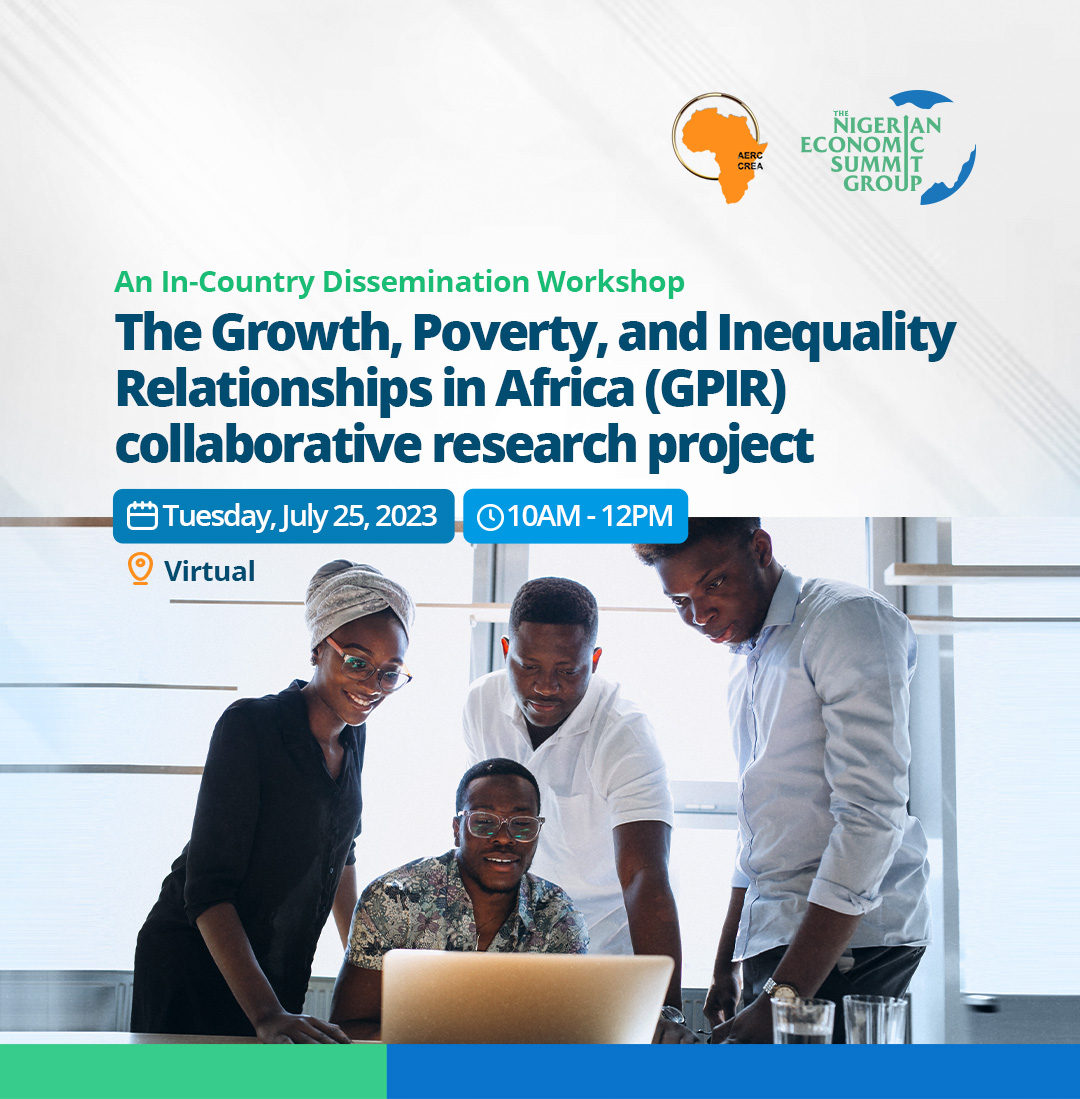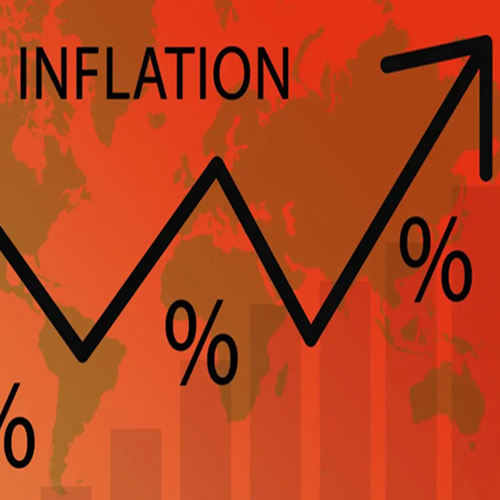Posted Tue, Jul 18, 2023 3:40 PM
Timeframe: Tue, Jul 25, 2023 10:00 AM - Tue, Jul 25, 2023 2:00 PM
The Growth, Poverty, and Inequality Relationships in Africa (GPIR) collaborative research project

Economic growth in Nigeria is yet to be translated into a significantly reduced poverty level, countering the United Nation's (UN) Sustainable Development Goal 1 (SDG1) of ending poverty by 2030. Despite strong average economic growth of 8.5 percent in the 2000s, the poverty reduction process remained slow. Nigeria remains one of the African countries which has experienced a rising trend in the level of poverty. The poverty rate grew from 26 percent in 1980 to 46 percent in 2004. Although a decline to 35 percent was observed in 2010, the poverty rate has risen from 35 percent in 2010 to 41 percent in the recent time - 2019. Although income inequality as measured by the Gini index in Nigeria marginally declined to roughly 40 points in 2016, from average value of 41 points in 2004-2013, the latest Commitment to Reducing Inequality (CRI) report by Development Finance International (DFI) and Oxfam International records that the country remains at the bottom of CRI index, with a shamefully low social spending, increase in labour rights violations, and low tax collection.
More perturbing is the spatial dimension of poverty and income inequality. Compared to rural areas, urban areas in Nigeria experience a significantly lower poverty rate. While poverty rates in rural areas were 48.5 and 52.1 percent in 2013 and 2019, the urban areas rates were only 15.9 and 18.0 percent in the two periods, respectively. Poverty rates in the north are higher as compared to poverty rates in the south. On average, poverty rates in northern regions in 2013 and 2019 were 48.5 and 60.0 percent, while the rates in the southern regions were only 22.8 and 25.3 percent, respectively. Closing spatial well-being disparities has become a priority within the Nigerian government's development policies and at the centre of public debates. Empirical evidence on household human capital endowment drivers of economic well-being is necessary to aid the actualisation of development policies.
Find an event
Latest Releases
_1731941578.png)
Leveraging Artificial Intelligen .. Read
4 days ago

Second Consecutive Increase: Hea .. Read
1 day ago

The Dynamics of Access and Influ .. Read
4 days from now
